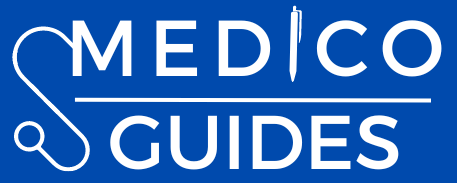In this post, we’ve provided an overview and download link for the Physiology PreTest Self-Assessment and Review 14th Edition in PDF format. Check out the detailed overview below and use the link given at the end of this post to download the PDF directly.
Physiology is a foundational subject for medical students, and mastering it is essential for both exams and clinical practice. The PreTest Self-Assessment and Review series has long been a favorite among students preparing for the USMLE and other medical exams, and the Physiology 14th Edition continues that tradition by providing comprehensive practice questions and concise explanations.
About the Author
Physiology PreTest Self-Assessment and Review is authored by Dr. Patricia Metting, a distinguished educator in the field of medical physiology. Dr. Metting’s vast experience in teaching physiology ensures that this review book is well-structured to meet the needs of students preparing for exams, offering both depth and clarity.
Why Choose Physiology PreTest Self-Assessment and Review 14th Edition?
This book is an excellent resource for students looking to assess their knowledge of physiology through practice questions. With over 500 multiple-choice questions (MCQs) designed to mimic those found on medical exams, this review is a valuable tool for self-assessment. The concise explanations for both correct and incorrect answers provide a deep understanding of key physiological concepts.
Key Features
Over 500 USMLE-Style Questions: The book includes a large number of practice questions that are representative of those found on the USMLE Step 1 and other medical exams.
Detailed Answer Explanations: Each question is followed by a detailed explanation, helping students understand the reasoning behind both correct and incorrect answers.
High-Yield Topics: Focuses on the most important areas of physiology, making it an ideal resource for rapid revision and last-minute study sessions.
Clinical Vignettes: Some questions include clinical scenarios to help students apply their knowledge in real-life medical situations.
Chapter Wise Overview
- Cell Physiology: Covers the basics of cell structure, function, and homeostasis, including membrane transport and signal transduction.
- Nerve and Muscle Physiology: Explores the mechanisms of nerve conduction, muscle contraction, and neuromuscular transmission.
- Cardiovascular System: Reviews cardiac function, blood flow, and the regulation of blood pressure and circulation.
- Respiratory System: Discusses the physiology of ventilation, gas exchange, and the control of breathing.
- Renal Physiology: Focuses on kidney function, including glomerular filtration, tubular reabsorption, and electrolyte balance.
- Gastrointestinal Physiology: Examines the processes of digestion, absorption, and the motility of the gastrointestinal tract.
- Endocrine System: Explores hormonal regulation and the physiology of glands, including the hypothalamus, pituitary, thyroid, and adrenal glands.
- Reproductive System: Covers the physiology of male and female reproductive systems, including hormonal control of reproduction.
- Integration of Metabolism: Discusses the interplay between metabolic pathways, including carbohydrate, fat, and protein metabolism.
Clinical Relevance
The PreTest Self-Assessment and Review series is known for its focus on clinical application, and the Physiology 14th Edition is no exception. The questions often include clinical vignettes that require students to apply their physiological knowledge to diagnose and manage medical conditions. This emphasis on clinical relevance makes it particularly useful for those preparing for the USMLE and other board exams.
Preparing for Medical Exams
Physiology PreTest Self-Assessment and Review is specifically designed to help students succeed on medical exams. The USMLE-style questions give students the practice they need to become familiar with the exam format and difficulty level, while the detailed explanations ensure a thorough understanding of the material.
How to Effectively Use This Book
To maximize the benefits of this review book, it’s recommended that students use it after studying their main physiology textbook. After completing each chapter in your textbook, test your knowledge using the corresponding section of PreTest Self-Assessment and Review. Pay close attention to the explanations provided for each answer to reinforce your understanding.
Comparison with Other Physiology Review Books
While other physiology review books may offer more in-depth coverage, PreTest Self-Assessment and Review excels in its focus on self-assessment. The book’s numerous practice questions and detailed explanations make it an excellent tool for testing your knowledge and preparing for exams. Compared to other review books, it is more focused on active learning through questions.
Download Physiology PreTest Self-Assessment and Review 14th Edition PDF
For students and professionals who prefer having a digital copy, here’s the direct link to the Physiology PreTest Self-Assessment and Review 14th Edition PDF. Download it now to practice for your exams anytime, anywhere.PDF. Download it now to access the full textbook on your device and begin your preparation for the USMLE Step 1.
FAQs
- What makes Physiology PreTest Self-Assessment and Review different from other review books?
- The book focuses on self-assessment through a large number of practice questions, helping students actively test their knowledge.
- Is the 14th Edition suitable for beginners?
- Yes, the book is designed for students at all levels, providing questions that range from basic to advanced difficulty.
- Does the book cover all areas of physiology?
- Yes, the book covers all major areas of physiology, with questions on cell physiology, cardiovascular system, renal system, and more.
- Can this book be used for USMLE Step 1 preparation?
- Absolutely. The questions in this book are designed to reflect the style and difficulty of the USMLE Step 1 exam.
- Where can I download the book?
- You can download the PDF through the direct link provided in this post.



